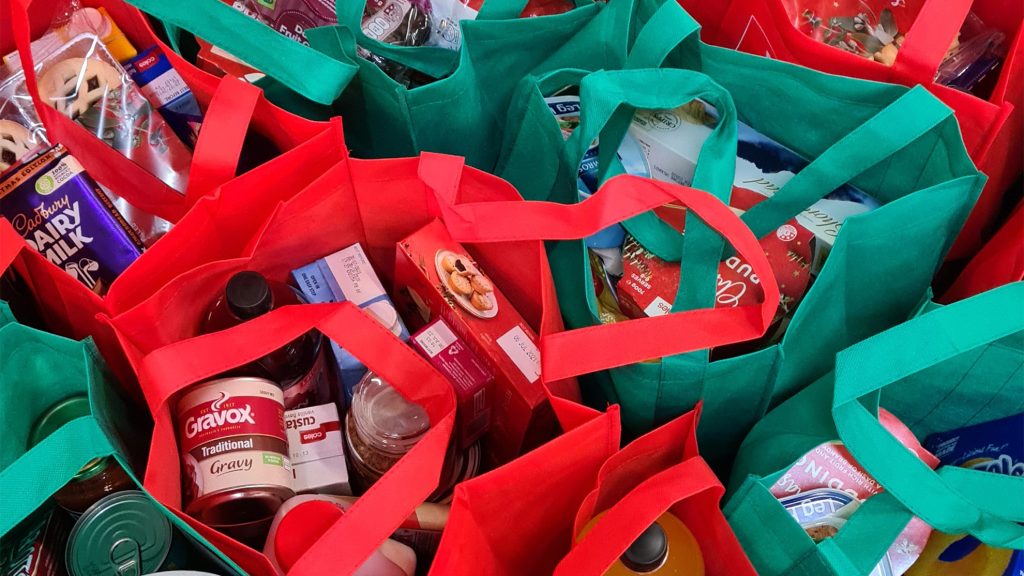
Most retailers rely on the holiday season to bring in peak sales numbers. This year, supply chain problems, invigorated consumer demand, and new shopping behaviors have already impacted holiday shopping. With Black Friday and Cyber Monday coming up, online and offline retail outlets will experience a challenging holiday sales season this year. Find out what to expect for 2021 holiday shopping and how to turn this gift-buying period into the merriest holiday sales season yet.
Retail trends for the 2021 holiday season
Naturally, each retailer’s experience with holiday sales may depend upon their market niche or location. Still, these overall consumer trends should impact most local and online sellers.
Pent-up demand from consumers
On the plus side, the National Retail Foundation predicted a record sales season in 2021. The NRF’s Retail trend forecast takes into account an enormous pent-up demand from consumers. Many people budgeted carefully during the pandemic because of uncertainty about the future.
Today, vaccines, labor demand, and stimulus checks should reinvigorate shopping. The NRF expects holiday sales to total between $843 and $859 billion, and these figures represent growth between 8.5 and 10.5 percent since the holiday season of 2020.
Start sales early
Traditionally, the day after Thanksgiving, called Black Friday, marked the start of holiday deals in physical stores. Cyber Monday would fall after Thanksgiving weekend, and it gave online retailers a chance to gain more attention. Lately, the lines between Black Friday and Cyber Monday have begun to blur as more large retailers aligned online and offline sales to pursue an omnichannel marketing approach.
This year, Black Friday and Cyber Monday may mean even less. Just about every large retailer started their sales early. For instance, Target has a Holiday Savings Event that runs through Thanksgiving, Amazon will have Epic Daily Deals, Walmart calls their sale Black Friday Deals for Days, and so on.
Why do stores want to encourage early shopping? These retailers expect a significantly increased demand but fear that they may experience supply chain issues that keep them from satisfying all customers. Thus, offline and online stores want to hold early sales to help encourage shoppers to get a head start. Also, the post office has posted warnings about delivery delays, so consumers should order early to make sure gifts arrive on time.
Expect more conscious consumers
Even though many consumers have their balance sheets in good order, they will still exercise more caution about the way they spend money. To support this observation, Forbes reporting on the PwC’s 2021 Consumer Insights survey uncovered that today’s consumers base buying decisions on more than convenience and price.
For some examples:
- Plant-based food sales increased 27 percent, organic food sales by 12 percent, and nutritional supplements by 35 percent in 2020.
- Two-thirds of Americans say they will pay more for sustainable products. Over three-quarters say they will feel more inclined to purchase eco-friendly products if they’re clearly labeled.
On the theme of increased sustainability, more people find regifting acceptable, just so the re-giver follows some commonsense rules. For instance, a crafty friend might consider a regifted craft store gift card thoughtful so long as the card still retains the original balance and not some odd amount. Similarly, unless they’re sentimental treasures or antiques, only offer new, packaged products as gifts.
Anyway, retailers should not mind this thrifty practice so long as it reduces the number of cumbersome returns. Some businesses even promote services that make regifting gift cards easy.
How can retailers make the most of holiday marketing this year?
Increased demand can help retailers thrive and may look like a great problem to have. On the other hand, supply chain issues can generate issues because even the biggest retail sites and stores fear they can’t satisfy all of their potential customers. Maybe even worse, shipping delays will probably result in plenty of late gift deliveries.
Leaving customers dissatisfied or disgruntled can detract from hard-won brand images and encourage people to shop elsewhere the next time. Few customers will feel satisfied if their Christmas gifts don’t arrive by December 25 if the store had promised an earlier delivery. More than a few of them will probably vent their dissatisfaction on social media or review sites.
Communicate honestly and promote early holiday shopping.
Stores need to confront this common issue by letting customers know about possible shortages and encouraging them to shop early. For example:
- Communicate transparently: By now, almost all consumers have already experienced some supply chain issues. As an example, few people have entirely forgotten last year’s panic over toilet paper shortages. Retailers should encourage customers to shop early and, more than that, tell customers about the possibility of delays or low inventories.
- Promote early shopping: Heavily promote special sales and create a genuine sense of urgency by telling people about a limited stock. To better encourage quicker purchases of big-ticket items, consider buy-now-pay-later options. For example, Shopify offers a product called Shop Pay that can allow customers to split the bill into four payments without impacting credit scores. Shopify says that this alternative has increased store conversions by as much as 50 percent.
Work with a retail marketing agency to maximize your holiday profits.
As a retail marketing agency, Bigeye merges genuine consumer insights with creativity to reach more customers right when they’re ready to hear your business story. Contact Bigeye for a chance to view your marketplace in a new light.



